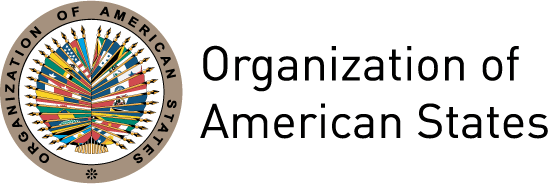ICT4Peace Capacity Building for International Cyber Security Diplomacy – Promoting Openness, Prosperity Trust and Security in Cyberspace
1 September 2014, Geneva, Switzerland: ICT4Peace is pleased to announce, that is has launched a first of its kind International Cyber Security Diplomacy Training Programme. The development and delivery of the programme is supported by the Governments of the United Kingdom, Germany and Switzerland. The first Course will be delivered in November 2014 in cooperation with the Organisation of American States (OAS) for the Latin American Countries. Similar courses will be delivered for African, Asian and European Countries in 2015.
This new cyber security capacity building programme was developed as a direct follow-up to some of the recommendations tabled in the 2013 Report of the “UN Group of Governmental Experts on Developments in the Field of Information and Telecommunications in the Context of International Security” and the Seoul Conference on Cyberspace, held in October 2013.
Description of the Two-Day Workshop Course on International Cyber security Diplomacy
1. Long Term Objective and Impact of the Course: Mitigating risks to both rights and security in the cyber-sphere through the promotion of international norms of responsible state behaviour, confidence-building measures (CBMs), and international cooperation. The expected long-term impact will be:
- More inclusive and knowledge-based debates, consultations or negotiations with and by all regions on norms and CBMs, with all stake-holders: governments, industry, civil society, and academia;
- More agreements at bilateral, regional at global level on norms, CBMs and international cooperation;
- Progress towards a sustained open, prosperous, trustworthy, safe and secure cyberspace.
2. Short Term Objective: 1.) A better and more detailed understanding by public officials, diplomats, industry, civil society representatives from all regions of the world of international norms, CBMs and international cooperation in cyberspace, to broaden the participation in the international debates and regional and global negotiations in fora such as the London Process, UN GGE, OSCE, ASEAN, OAS, in the EU, the AU and AP-CERT; 2.) A better understanding of the concerns, best practices, policies and institutional arrangements in the field of cyber security at the regional level; 3.) A template of a Workshop Course on International Cyber Security Negotiations will be tested and established. 4.) Build a network of alumni, lecturers and experts of the workshop course, to up-date and exchange information on future developments in the global and regional international cyber security debate, research and negotiations.
3. Course Content: The course provides an introduction to the subject of international cyber security negotiations and the current consultation and negotiation efforts. Participants will be exposed to the context in which cyber security is being addressed in global fora, such as the UN GGE, OSCE, ARF and consider the key issues raised by ICTs. A simulation exercisewill provide an active learning opportunity. The course will provide an opportunity for participants and lecturers to discuss and learn of cyber security-related concerns, best practices and policies at the regional level.
4. Participants: The course will be by invitation only and of particular interest to government officials involved in foreign policy development and/or cyber security diplomacy as well as private sector and civil society representatives who have a stake in an open, free and secure regime for cyberspace. A ceiling of 20 to 25 participants per course session is recommended to facilitate discussion.
Please find also the publications of ICT4Peace on rights and security in a resilient cyberspace since 2011 here (embed and delete from text https://ict4peace.org/?p=1076), or selected publications below:
- Getting down to business: Realistic goals for the promotion of peace in cyber-space (2011)
- ICT4Peace brief on upcoming Government Expert consultations on Cyber-security (GGE) at the UN in New York (2012)
- An overview of global and regional processes, agendas and instruments (2013)
- What Next? Building Confidence Measures for the Cyberspace (2013)
- Baseline Review of ICT-Related Processes and Events: Implications for International and Regional Security (2014)
- ICT4Peace briefs the UN in Geneva on the cyber security challenge and what can be done (2014)
- International Workshop on Information and Cyber Security, Beijing, 5 – 6 June 2014
- Confidence Building Measures and Norms for Cybersecurity and the Future of Internet Governance (2014)

